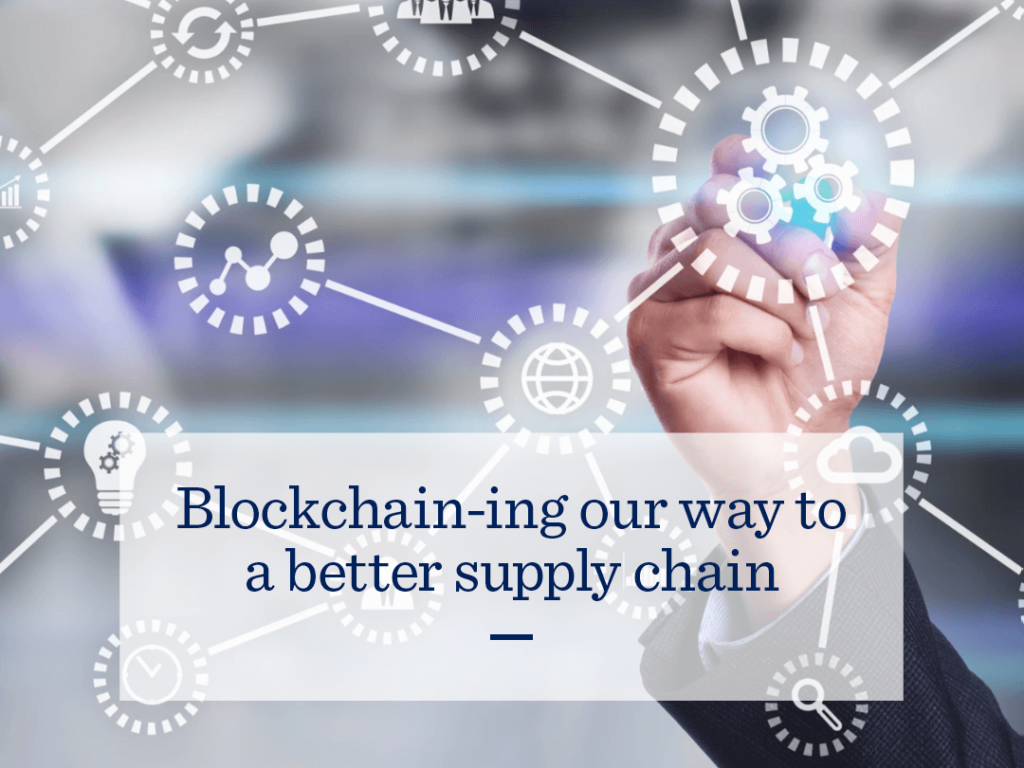
Blockchain is all the buzz these days. Sectors across finance, healthcare, media, government, and food, in the U.S. and around the world, are looking at how they can leverage blockchain for everything from medical record security to financial transactions and more. Blockchain is said to be the great democratizer and equalizer. Some liken it to the emergence of the internet where it can open seemingly infinite possibilities for change and improvement.
In the food industry, blockchain is just getting started, where its potential to transform our industry is significant.
But first, what exactly is blockchain? A blockchain is a continuously growing list of records, called blocks, which are linked and secured together. Essentially, it’s information or data that is securely shared and where that combined knowledge can make good things happen.
Our friends at IBM, where we have a partnership to explore the use of blockchain, have a more technical description. They define blockchain as a shared immutable ledger for recording the history of transactions. Let’s break that down a bit:
- Shared – stakeholders in the supply chain are expected to contribute information to the data stream
- Immutable – information that enters the data stream cannot be changed, ensuring data integrity
- Ledger – a single place where all transactions are recorded.
So what does blockchain mean for Tyson Foods?

First, it’s important to note a shift that’s taken place, a movement that consumers are driving as they demand more transparency and traceability in the products they buy – food included. It’s because of this shift that companies like Tyson are exploring blockchain technology in supply chain as we seek to develop capabilities that will enable us to provide the level of information consumers are seeking.
Food safety has always been important at Tyson and our team members are some of the finest in the world at ensuring the security and safety of the food we produce. Some of the documentation around those controls are still done in analog format (excel spreadsheets, for example). But last week we announced an initiative that will lay the foundation for a digital transformation of our supplier management system. This initiative – through a partnership with FoodLogiQ, a Durham, NC-based software developer focused on food traceability – will test the applicability of blockchain within our supply chain.
Tyson’s food safety team was introduced to FoodLogiQ by our TYSON VENTURES TEAM, THE VENTURE CAPITAL ARM OF TYSON FOODS, and was impressed by the FoodLogiQ product and the company’s focus on mapping the world’s food supply chain.
What also makes this pilot interesting is that Tyson Ventures recently made an investment in FoodLogiQ as part of the company’s recent financing. Tyson Ventures makes investments based on the core pillars of Sustainability and the Internet of Food, which includes a focus on leveraging technology to enhance traceability in the supply chain.
As a global leader in food, it is our responsibility to explore the most efficient means of production that also enhance the safety of our products. Today, Tyson does an outstanding job of tracking animals and products as they move through our network of farms, processing facilities and distribution centers. Blockchain may provide a mechanism for Tyson to enhance those capabilities, and facilitate a portal for Tyson to communicate data with our customers as products leave our system and enter their supply chains.
So, what does it mean that the largest food company in the United States is committing time and resources to blockchain in supply chain? Time will tell how and when blockchain supply chain technology makes its impact most felt. We believe that Tyson can always make improvements to its systems and participating in this pilot will provide another lens into that enhancement as we work every day to raise the world’s expectations for the good that food can do.
Published June 14, 2018.






0 Comments
Leave A Comment